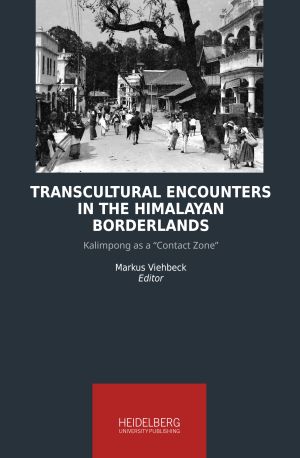Zitationsvorschlag
Lizenz (Kapitel)

Dieses Werk steht unter der Lizenz Creative Commons Namensnennung - Weitergabe unter gleichen Bedingungen 4.0 International.
Identifier (Buch)
Veröffentlicht
Looking Beyond the Land of Rice: Kalimpong and Darjeeling as Modern Buddhist Contact Zones for Sikkimese Intellectual Communities
Abstract Tibetan and Himalayan forms of Buddhism have occupied an ambiguous position in the flourishing scholarship on the emergence of modern Buddhist movements around the world during the colonial period. Due to Tibet’s isolation, Orientalist myths regarding its unique form of Buddhism abounded, often representing it as backwards and superstitious. This was in contrast to popular ideas about Buddhism that depicted it as a rational, scientific belief system that was compatible with Western colonial modernity. However, a number of Himalayan intellectuals were deeply involved with movements that overturned these binary representations of Buddhism and its Tibetan and Himalayan forms. A surprising number of these intellectuals were from the tiny Eastern Himalayan kingdom of Sikkim. This article will explore the life of Kazi Dawa Samdup, a prominent Sikkimese intellectual who undermined Orientalist depictions of local Himalayan Buddhist traditions through his campaigns of scholarship and activism between the late nineteenth and early twentieth centuries. I will argue that the sites of Samdup’s education and activities—Kalimpong and Darjeeling—enabled him to gain a uniquely transcultural education and awareness of global currents of thought about Buddhism as a result of their position between empires and as part of active trade networks. His exposure to global ideas found in Kalimpong and Darjeeling allowed him to keep actively engaged in these currents and to leave an important legacy that is often unacknowledged in studies on the formation of modern Buddhist networks.






